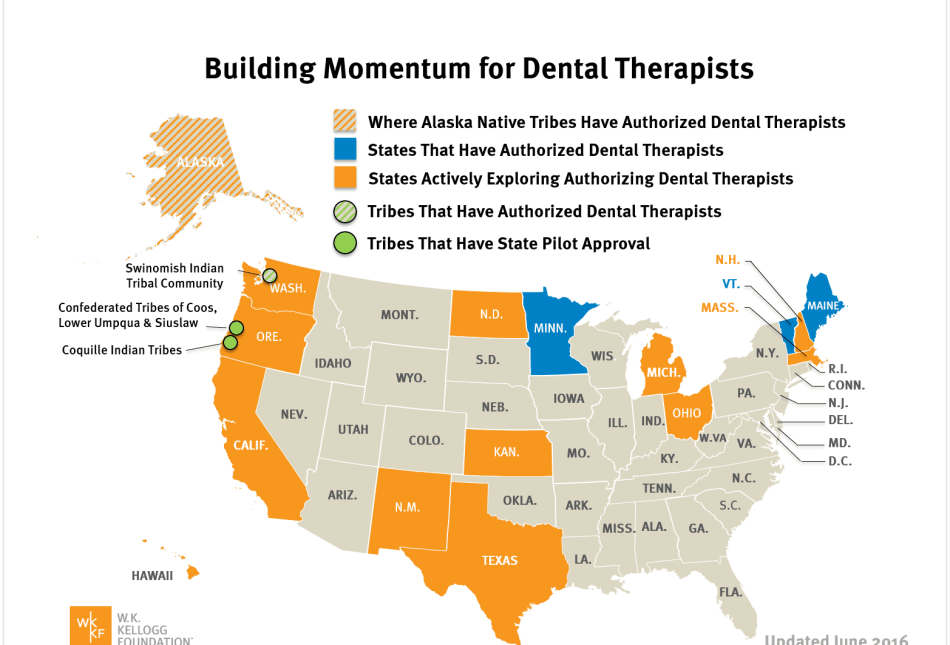Experiences from Other States Show Merit of Dental Therapy

ALBUQUERQUE — With Santa Fe deeply divided between a Democrat-controlled legislature and a Republican-led executive branch, the potential for stagnation and stalemate is high as lawmakers convene for the 2017 session.
One issue that has generated support from across the political spectrum, won’t break the bank, and will result in both jobs and improved lives for thousands of New Mexicans is dental therapy.
The Rio Grande Foundation and Health Action New Mexico rarely see eye-to-eye, but on the issue of mid-level dental providers, both organizations are in lock-step support. Legislation will be put forth to address the issue by a bi-partisan group of legislators during the session.
The Rio Grande Foundation has released a new policy brief, “Enchanting, and Affordable, Smiles: Why Dental Therapy is Right for New Mexico.”
The paper, which was authored by Rio Grande Foundation Research Director Dowd Muska, details existing dental issues in New Mexico, including the lack of practitioners in rural communities. One Bloomberg analysis found that 40 percent of New Mexicans live in “dental deserts.” Also, the New Mexico Health Care Workforce Committee found that 18 of the state’s 33 counties have shortages of dentists.
Muska illustrates how the dental-therapy concept — which began in New Zealand — took root in Alaska, and then spread to other states, including Minnesota, Maine, and Vermont. This is a diverse group of states that, while generally in the northern part of the United States, like New Mexico, have large swaths of rural, underserved communities within their borders.
Furthermore, as Muska notes, Minnesota’s program has been in place for enough time to achieve results, including:
- reduced wait times, with 77 percent of “patients who reported it had taken at least two months to get a previous appointment … getting the current appointment in less than one month”
- decreased travel time for patients — for “93 percent of respondents, it took less than one hour to travel to the current dental appointment with the dental therapist, compared to 74 percent who traveled less than an hour to their last appointment”
In conclusion, dental therapy is a small but significant reform of New Mexico’s occupational-licensing laws that could have potentially large, positive impacts on the dental care received by our state’s rural population.
